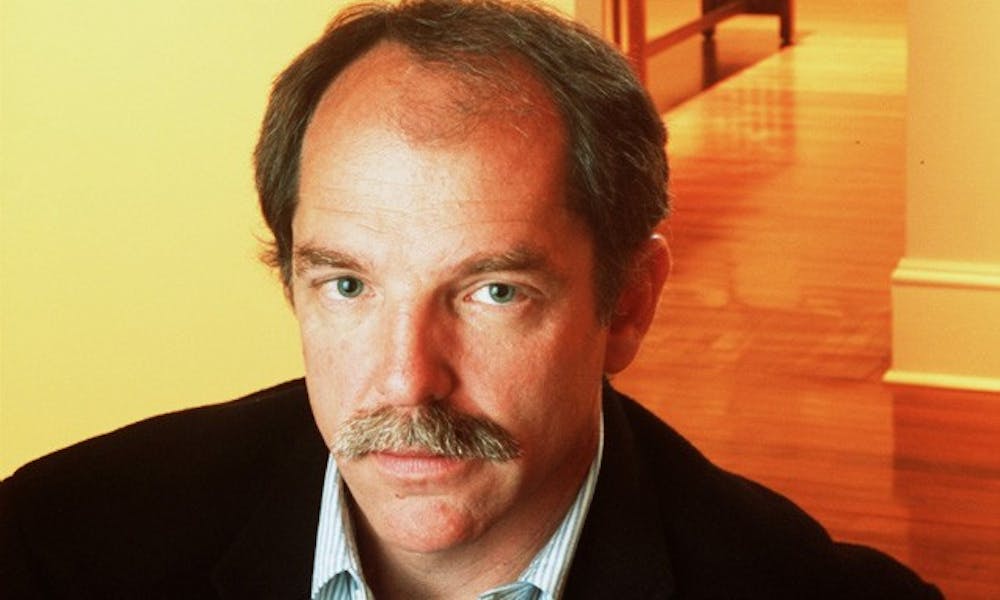With the anniversary of the 9/11 attacks quickly approaching, many Americans are reflecting on the implication of the attacks and their significance for the United States 10 years later. Tom Rankin, director of the Center of Documentary Studies at Duke, contends that society has been overwhelmed by images of 9/11. The Chronicle’s Spencer Woody sat down with Rankin to discuss this point as well as how this tragedy should be remembered.
The Chronicle: You have said before that we will be inundated with images around 9/11. What exactly do you mean by this?
Tom Rankin: Well, it’s a major anniversary and all media outlets have special issues and documentaries about 9/11. So there are lots of people—for good reason—doing anniversary programs of various kinds. Part of what I mean by inundated is [that it’s hard] to get our heads around a quiet moment to reflect on the 10-year anniversary, and you’d like to think that after 10 years you can start to understand [it] in a deeper way.
TC: So you believe the coverage has been excessive?
TR: Yes, but I don’t think the real issue has been the coverage but rather the question of how do we pick out of all this information what we want to use to mark an anniversary. I actually think it’s moving and remarkable how there has been so much coverage and that so many people have so much to offer around the anniversary. But as individuals trying to mark [the anniversary] ourselves, we might be better off to look at one photograph as opposed to a thousand, or instead of looking at 10 documentaries to focus on one and use that as our prism through which to mark the anniversary.
TC: Right now are we misrepresenting the significance of 9/11?
TR: No, but I think there’s always the danger that we trivialize it through broadcasting. We can always trivialize history through over-promotion. But no, I don’t think [that we are misrepresenting] it. I think 9/11 is so fundamentally profound for everybody. My primary concern is, how do we get a chance to really think about it deeply when you are bombarded by imagery? That’s really the question for all of us. Sometimes the most moving renderings are a single person’s story. That’s all you need, and it metaphorically captivates that moment.
TC: Is the media’s coverage too shallow and not analytical enough?
TR: It isn’t so much who’s covering it but how we decide to respond to the coverage. And I don’t think analysis is always the answer. On the radio I heard a story about a chaplain for a New York City firehouse who was killed in the attack, and that’s powerful. That alone touches on all the tragedy and heroism of that moment, and I’m sure there are others. You could listen to many different stories but that one stays with you.
TC: So from an individual standpoint, how should we engage?
TR: I think we should find a select handful of documentary presentations—because I’m a documentarian—whether they’re presentations or films and use those as a way to reflect. It’s enormously important that we reflect on the anniversary and that we think about [the past] 10 years and about where we are and what it means, and finally that we do it on our own terms, not just be told what it means.
TC: It’s been 10 years since 9/11. How is it relevant to today’s society?
TR: Well obviously there’s the relevance in the larger, so to speak, drama between good and evil. And it makes us think about ourselves and the American character. For me, what’s important about it is to realize how surprised we were at an attack that really came out of nowhere. We were all shocked that it happened and that in a small amount of time, a huge number of lives were lost. All of our lives were impacted. And that’s a lesson that we should really hold on to. We think about all the people who were lost, and the story of each one of their lives.
TC: One last question. May I ask how you personally will be commemorating the anniversary?
TR: [laughs] I knew you were going to ask that. I think I will watch the “O’ Say Can You See” installation here [at the Center for Documentary Studies] by filmmaker Laura Poitras and then read The New York Times to see how they handle the topic of the anniversary.
Get The Chronicle straight to your inbox
Signup for our weekly newsletter. Cancel at any time.

